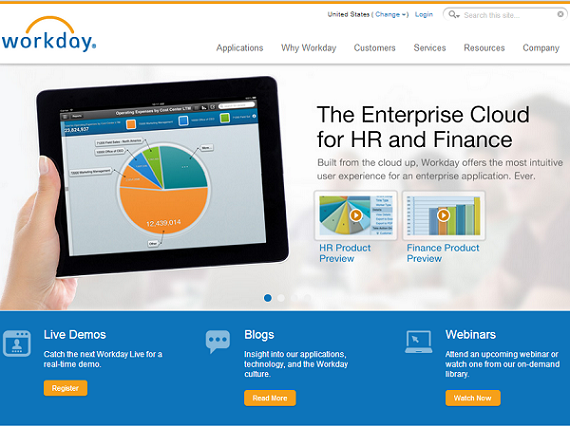
HR software company Workday has priced its shares at $21 to $24, it said in an updated S-1 filing with the Securities and Exchange Commission Monday.
Workday is offering 22.75 million shares of class A stock, meaning it could raise up to $546 million in its IPO. In its previous S-1 form, the company had set its sights on raising $400 million in its debut.
The company has both Class A and Class B stock. Class B shares generally come with more voting rights than those that are Class A. While this is not always the case, a Class B shareholder will commonly receive extra votes to approve changes within the company. It can be five, 10, or even 100 votes, depending on the company. In the case of Workday, its class B stock entitles owners to 10 votes, while class A holds only one vote.
Essentially, Class B shares are generally those who have an interest in running the company, while those who have Class A stock are in to buy and sell for profit.
The holders of Workday’s Class B stock would hold around 98% of the voting power of its outstanding capital stock following the offering, it says in the SEC document. Co-founders and co-Chief Executive Officers, David Duffield and Aneel Bhusri, together with their affiliates, will hold approximately 67% of the voting power.
The company has 137,540,031 outstanding Class B shares, and total 160,290,031 shares outstanding.
In addition, underwriters Morgan Stanley, Goldman Sachs, Allen & Company, J.P. Morgan, Cowen and Company, JMP Securities, Pacific Crest Securities, Wells Fargo Securities and Canaccord Genutiy, have the right to purchase up to an additional 3,412,500 shares of Class A common stock to cover over-allotments.
Workday plans to list on the New York Stock Exchange under the symbol WDAY.
Pleasanton, California-based Workday, which was founded in 2005 by Duffield and Bhusri, offered solutions to running a company, including payroll, financial management (billing, accounting, cash management, etc.), time tracking, and human capital management (absences, benefits, organization, and so on). The solutions are a cloud-based alternative to in-house legacy enterprise applications, which are pricey, inflexible, and outdated.
The company has seen revenue grow the last three years. The company reported revenues of $134.4 million in 2011, up from $68.1 million in 2010 and $25.2 million in 2009. In the six months ending July 2012, Workday’s total revenue was $119.5 million, up 118% from $54.8 million at the same time last year.
Despite the increased revenue, the company has also seen increased losses. In 2011, Workday suffered a net loss of $79.6 million, up from $56.2 million in 2010 and $49.9 million in 2009.
Workday has applications in 21 different languages, and serves 325 customers including Aviva International Holdings, AIG, Georgetown University, Four Seasons Hotels, Lenovo, and Kimberly-Clark Corporation, among others. Its largest deployment to date was for an organization with a global workforce of more than 200,000 employees.
Last fall, the company raised $85 million, bringing its total financing to $250 million, which had some experts estimating the company’s valuation to be $2 billion. Financial backers include Amazon CEO Jeff Bezos’s Bezos Expeditions, Janus Capital Group, Morgan Stanley Investment Management, and T. Rowe Price, among others.
(Image source: http://www.workday.com/)


















